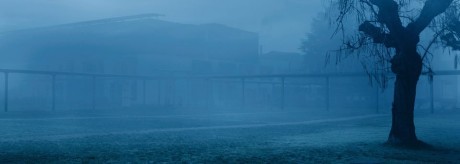


CPH:DOX 2018/ 12 Days

RAYMOND DEPARDON: 12 DAYS
Wow – Raymond Depardon’s latest film 12 Days made a deep impression. It is simple, powerful, sober and precise.
In France, a citizen who is involuntarily committed to psychiatric treatment has, within 12 days, the right to have his case overlooked by a judge, and it is this meeting between the patient, the mental health system and the system of justice Depardon examines in his documentary.
The film opens up with the camera moving slowly through the empty corridors of the closed ward of a psychiatric hospital ending up in front of the locked door, immediately installing the claustrophobic sense of being deprived of one’s freedom. It sounds like a cliché as I write it, but in the film it’s an important and very powerful scene.
When we are in the small court room with the patient, his or her lawyer and the judge, every case opens up to poignant, universal and fundamental questions of ethical, societal and political order.
No one is being judged or demonized and there are no easy answers, but the imbalance of power within the system is clearly visible.
How do you oppose when authority has decided what is “in your interest”? Are the lines blurred between incarceration and forceful psychiatric commitments? Is the system reacting adequately when there are children involved? Why medicalization and not psychotherapy? What if symptoms of work harassment are mistaken for a psychiatric diagnosis of the individual? Should you have the right to decide whether you want to live or not? These questions are put forward by the psychiatric patients themselves who, in their own words and in a language so different from that of the medical and jurisdictional officials, arguments clearly and rationally.
This is the patients’ opportunity to have their voice heard. The majority (but not all) of the films cases opposes to the medical decision of their forced hospitalization, and they have the right to appeal the verdict of the judge, who is practically always in agreement with the psychiatric expertise. But the judge agrees when one patients states that she won’t appeal because it would be of no use: “That’s exactly it, it would be of no use at all”. “Thank you for your abuse of power” as another patient bluntly puts it.
Besides the corridor scenes (a returning theme) and the court room sessions, 12 Days is composed of a number of carefully framed images of the surroundings of the hospital, grey everyday life, that works as tableaux of society as we have organized it.
A truly cinematic examination of a crucial ethical subject by a master eye, 6 pens without hesitation.